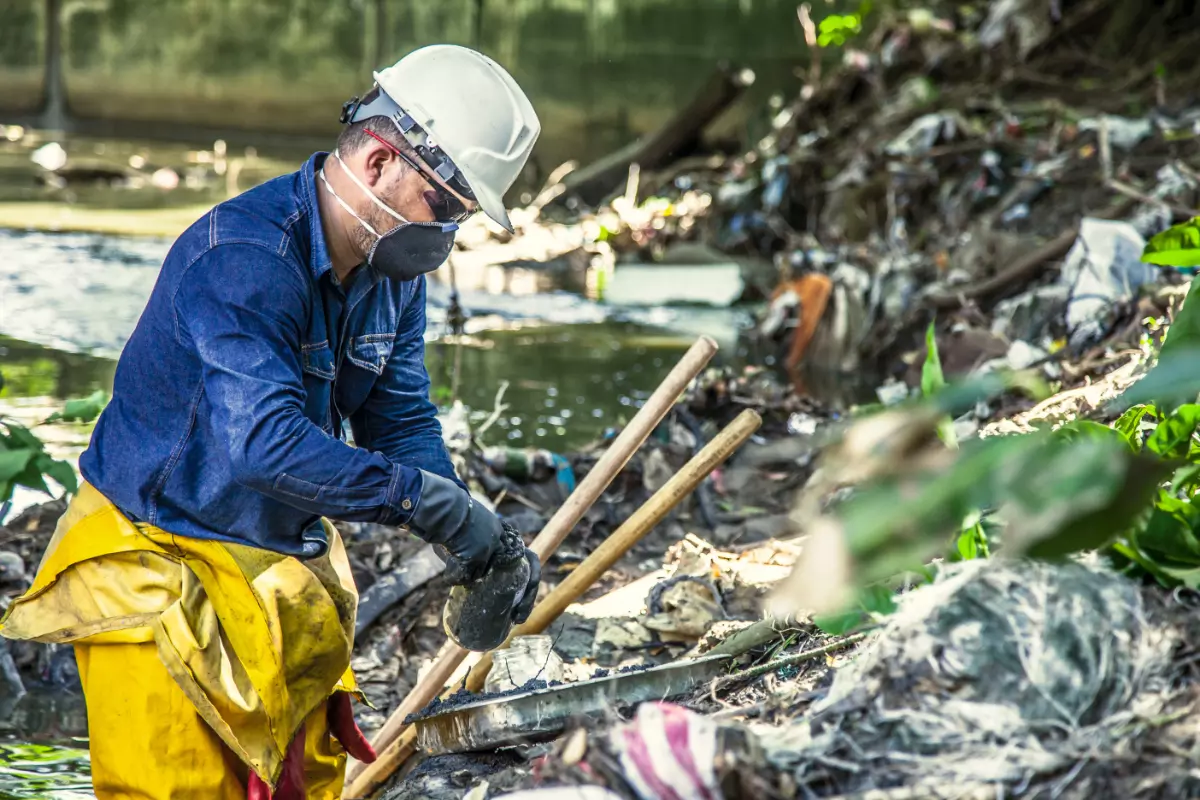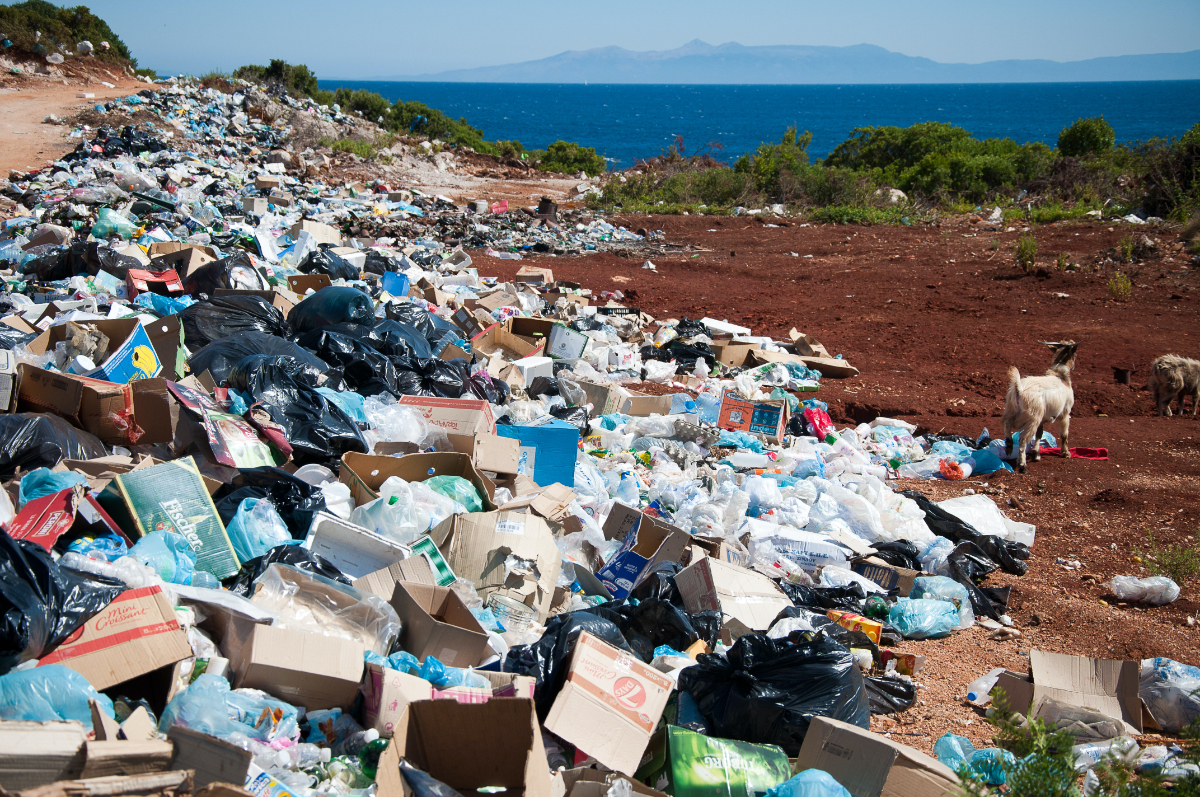Discover who is responsible for clearing fly-tipping and what actions you can take. Learn about the legal obligations of local authorities, landowners, and individuals in dealing with illegally dumped waste, and find out how to report fly-tipping incidents effectively.
If Fly-Tipping Is On Private Land, It’s Your Responsibility
When fly-tipping happens on private land, the landowner is responsible for its removal. This means you must bear the cost and effort of clearing the rubbish. Fly-tipped waste can include anything from household items to hazardous waste. Since the rubbish is dumped on private land, local councils generally don't help with its removal.
However, some councils offer paid services to help landowners clear fly-tipped waste. You can contact your local council to find out what support is available in your area. Fly-tipped waste should be removed as soon as possible to avoid health hazards and environmental damage. Leaving rubbish on your land can attract pests and spread diseases.
If you're unsure about how to dispose of certain types of waste, make sure to get professional advice. You can check with your local council for guidelines on disposal and clearance services.
Fly-tipping is a criminal offence that poses a risk to public health and the environment. By staying vigilant, you can help reduce the instances of fly-tipping in your area. While it's unfortunate that the responsibility falls on you as a landowner, taking action is essential. Keep your property secure and check for any signs of illegal dumping to maintain a safer environment.
Public Fly-Tipping Is The Local Council's Responsibility
Fly-tipping is a major concern, especially when it occurs on public land. When these incidents happen, the responsibility for removing the waste falls on the local council. Public land includes areas such as parks, roadsides, and other communal spaces.
Fly-tipping in these places harms the environment and also poses significant health risks. Left unattended, rubbish can attract pests, create unpleasant odours, and endanger public safety.
Local authorities take several steps to deal with fly-tipping efficiently. They clear dumped waste as soon as possible and implement measures to prevent further occurrences. One of the main strategies is to encourage residents to report fly-tipping. If you notice rubbish dumped on public land, it's crucial to inform your local council immediately.
Many councils have dedicated teams or specific websites where you can report fly-tipping. When doing so, provide details such as the exact location and the type of waste. In cases where the fly-tipping is extensive or poses a severe risk, the Environment Agency may step in.
This agency collaborates with local authorities to ensure the waste is removed and investigated. The combined efforts of the local council and the Environment Agency aim to tackle this nuisance effectively.
Responsibility for keeping public land clean is a collective effort. While local councils play a crucial role, residents also have a part to play. By reporting fly-tipping, communities can help maintain cleaner and safer environments. Education and awareness campaigns are also vital.
Understanding the impact of fly-tipping can discourage people from disposing of their waste illegally. Investing in better waste management facilities and services can help reduce fly-tipping incidents. Providing convenient and affordable disposal options encourages people to dispose of their rubbish correctly.

What To Do If Someone Fly-Tips On Your Land
If someone fly-tips on your land, it is crucial to take swift action. Begin by documenting the incident thoroughly. Take photographs of the waste and make notes on any relevant details, such as the type of waste and the time you discovered it. The next step is to report the fly-tipping to your local council.
While they may not be able to help with the removal directly, they can offer guidance and keep a record of the incident. It’s also a good idea to check if there are any nearby CCTV cameras that might have footage of the culprits. Unfortunately, the responsibility of removing the waste falls on you. It's often best to hire a professional clearance company, particularly if the waste is hazardous. Make sure the company has a valid licence to handle and dispose of the waste legally.
To prevent future fly-tipping, consider securing your land. You can do this by installing barriers or gates and clearly marking your property as private. Installing CCTV cameras can also act as a strong deterrent. If fly-tipping becomes a recurring problem, you might want to talk with other landowners in your area. Sharing information and strategies can be a helpful way to tackle the issue together. Remember, acting responsibly is key to managing and preventing fly-tipping on your land.
Who Investigates Fly-Tipping?
When fly-tipping occurs, the local council is typically responsible for investigating incidents on public land. They will send out officers to inspect the site, gather evidence, and, if possible, identify the perpetrators. Tyre marks, vehicle descriptions, and any labels can be valuable pieces of evidence.
For larger or more complex cases, the Environment Agency may take over the investigation. They track down large-scale offenders and ensure the waste is properly disposed of. They work alongside local councils and law enforcement to prosecute those responsible.
Members of the public can help investigations by providing any information they have. Reporting incidents quickly help authorities respond more effectively. In some cases, local councils may install hidden CCTV cameras in known fly-tipping spots to capture evidence. These cameras can help identify repeat offenders.
Additionally, local councils run public awareness campaigns to educate the community about fly-tipping. These campaigns include information on how to dispose of waste correctly and the penalties for illegal dumping. Both local councils and the Environment Agency play crucial roles in investigating fly-tipping.

How Does Fly-Tipping Affect The Environment?
Fly-tipping significantly harms the environment in many ways. When people dump waste illegally, they introduce hazardous materials that can contaminate soil and water. This pollution can have devastating impacts on local wildlife. Fly-tipping can lead to illness or death when animals ingest harmful substances or become ensnared in rubbish.
Fragile ecosystems, especially those near water bodies, are particularly vulnerable to fly-tipping. Blocked waterways become breeding grounds for mosquitoes and other pests. Additionally, the risk of flooding escalates since dumped rubbish stops the natural flow of water. These blockages can disrupt local ecosystems, and affect plants, animals, and even people.
Even when the waste isn't overtly hazardous, its presence alone creates environmental issues. Many types of waste do not decompose naturally, meaning they accumulate over time. This build-up can transform natural landscapes and public spaces into unsightly rubbish dumps. This degradation threatens local biodiversity and diminishes the quality of life for residents.
Local councils often bear the brunt of fly-tipping. Cleaning up illegally dumped waste demands significant time and financial resources. The cost of waste removal and site restoration diverts funds from other sectors such as education or healthcare.
Understanding the damage caused by fly-tipping underscores the importance of responsible waste disposal. Every individual has a part to play in reducing this issue. Simple actions like reporting incidents of fly-tipping can help authorities tackle this problem. Public education can also raise awareness about the proper disposal of waste. Being careful about how we dispose of our rubbish protects the environment and preserves public spaces.
By working together, communities can reduce the rate of fly-tipping and its effects. Volunteer clean-up events, stricter enforcement, and education can all contribute to a more sustainable environment. By doing this, we ensure that future generations can enjoy unspoilt public spaces. Take the initiative: report fly-tipping, educate others and always follow the guidelines. By doing our part, we help protect our environment for years to come.
Get in touch today if you require fly tipping clearance in Maidstone and Kent. Our experience and professionalism can help alleviate any stress or concerns you have concerning wastage.


